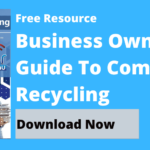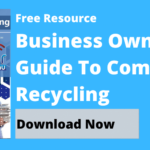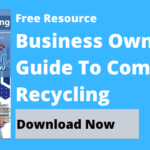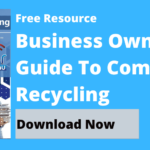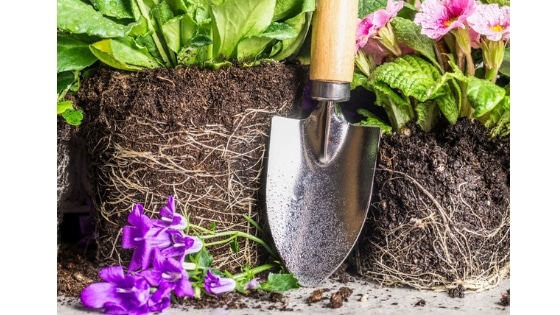Why Using Wood Wool Packaging Is Better 📦
Energy Disrupter
Wood Wool Packaging 📦: The search for plastic alternatives continues up to this day. That is to reduce it from polluting our environment in vast amounts. Oh, and did I already mention the tonnes of plastic products you can see in landfills? Those can be significantly reduced, too, if a better alternative is found.
Lastly, through the searching for and application of plastic alternatives, we can save up on natural resources. Unhealthy amounts of oil are being used in the manufacturing of plastic types and products, so it is only right that sustainable alternatives are sought for.
Wood wool, specifically, got my attention. Why is it better to use? Where can you apply it? Is it innocuous to the environment as they say it is? We will discuss everything in this blog. Read on to learn more.
>Download Now: Free PDF Business Owners Guide To General Waste Bin Services
A Bit About Waster
Before we discuss wood wool packaging and more, let me share with you more information about Waster.
We here at Waster provide you with innovative solutions for you and your business’s waste management and recycling needs. Furthermore, we provide flexible, 30-day contracts instead of the typical lock-in contracts, which proves to be better.
Click on the blue button to learn more.
READ: How To Stop Fruit Flies In Food Bins 🛑
Want to know more about recycling? Watch this video:
[embedded content]
What Is Wood Wool And Why Is It Good As Packaging?
The fact that we have been relying on plastic products too much for too long is very alarming. Going out to eat at fast food restaurants, taking out food, or even shopping in a mall makes you use plastic products. Things will get much worse if no viable solution is done in the following years or decades to come.
Fortunately, we now see efforts in developing plastic packaging alternatives – not just an alternative, but a BETTER alternative overall. And, that is what we are going to discuss today: wood wool packaging.
What is wood wool, anyway? Is it even something new that can reduce plastic waste and natural resource consumption? Let us learn all about it.
Basically, wood wool is a loose fill usually made from shredded timber. It is light and biodegradable, which means it is very environmentally friendly. People once primarily used it as packaging to protect transported goods. The absence of cars then (more than 200 years or so) meant that the people from that time used carts moved around by horses. Judging from that, transporting the goods can become quite a rocky ride, so wood wool was a very important aspect of packaging.
However, after quite some time, then came plastic. With its coming, it became very popular globally which resulted in the ditching of the wood wool packaging.
But now, due to people all over the world becoming more environmentally aware by the minute, they demand change. This means that they want a greener and more sustainable ways when it comes to everything – especially packaging.
Benefits Of Wood Wool Packaging
Obviously enough, wood wool shred has so many benefits instead of using the usual plastic. We already know it as an alternative to save more resources and reduce plastic waste. But what is it good for? And what exactly is it used for? Let us find out:
- You can use it as an effective packaging. Of course, we have already mentioned this above. You can use this as a protection for your goods.
- It is very durable. Additionally, it is also very easy to handle, hence spending less time in the packaging process. In other words, it can save you lots of time and effort.
- You can also reuse it many times. It is easily recoverable and very versatile.
What About Other Types Of Wool?
Are other types of wool aside from wood wool viable as packaging – or even other types of products?
The answer: a big, fat YES.
A notable example is sheep wool. Planet Protector Packaging, and Aussie company creating wool thermal packaging, use discarded sheep’s fleece wrapped in recyclable or compostable film. Sheep wool packaging not only helps heat up goods when it needs to, but it can also cool it down depending on its intended use.
Other Plastic Alternatives Aside From Wool
You can also find other plastic products other than packaging. This includes items like personal care products, household products, some metals, and synthetic fabrics. Additionally, you can also find them in nappies, wipes, cigarettes, and takeaway coffee cups.
Like wood wool packaging, you can find other alternatives instead of using the harmful plastic in the production of these types of items. Here are the other alternatives you can use aside from wood wool:
1. Steel – Obviously, this is the first thing that comes to mind when thinking of as an alternative. Replace takeaways cups, containers, utensils, and straws with stainless steel instead of the dreaded plastic. Additionally, stainless steel is 100 per cent, infinitely recyclable, not losing its properties after recycling.
2. Glass – Like stainless steel, you can use glass as a replacement for plastic. It is also infinitely recycled like steel, never losing its quality over time. Jars and bottles, for example, can be easily reused if they are made of glass. Just give them a good cleaning. You can even let out your creative side and turn them into art!
3. Bamboo – Finally, we also take a look at the bamboo. Unlike the first two examples, it is compostable. It is also very renewable, hence it being a great alternative to plastic. Examples of products you can see being made of bamboo are straws, utensils, and other tableware.

Wood Wool Packaging: Final Thoughts And Summarisation
Things are looking good in the future if we do continue replacing plastics. However, we can make this even better by implementing household collections for them to be recycled. This will spell more sustainable, as a result.
We here at Waster hope for a more plastic-less, recycling-increased, and waste-decreased world in the (hopefully) near future.
Waster: Things You Need To Know
If you’re looking for different bin services, check our waste recycling shop and find the best deals in terms of pricing and services.
Also, please call 1300 WASTER (1300 927 837), or email us at [email protected] if you have any further questions.





